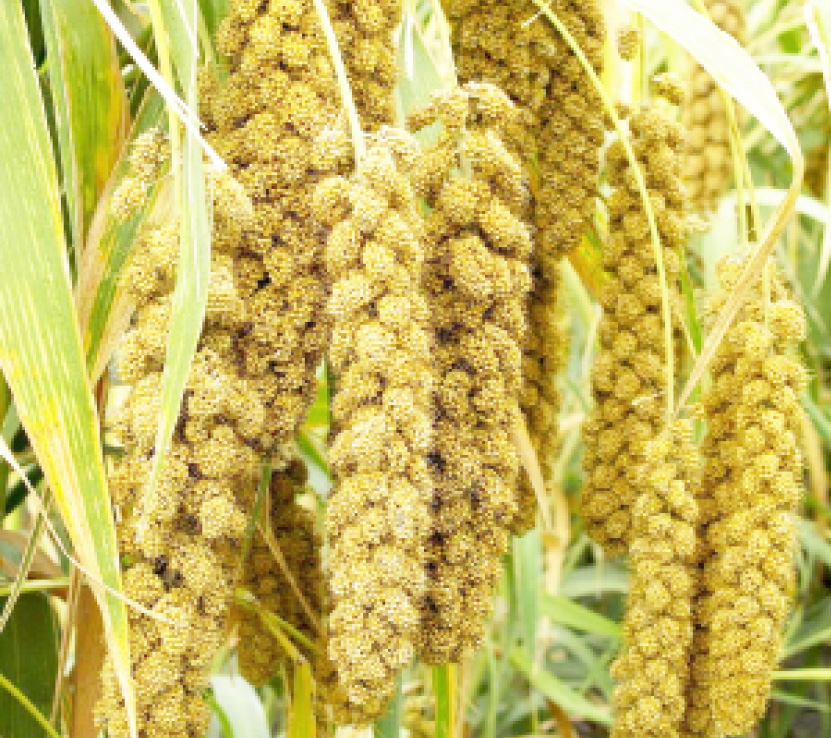In March 2021, the UN General Assembly declared 2023 to be the International Year of Millet on the Government of India’s recommendation. Over 70 different countries, including Nigeria, backed this plan.
In the next two years (2025), Global Market Insights Inc. predicted that the global millet market would be worth more than $12 billion, and Nigeria and India, the largest producer want to have 80 percent of that market share.
A few days ago, stakeholders in the agricultural sector including the Indian High Commission in Nigeria, the Food and Agricultural Organisation of the United Nations and world food programme, met in Abuja to examine the various ways to harness the economic potentials of millet.
The federal ministry of agriculture and rural development who coordinated the event emphasized that millet has huge potentials for putting money in the pocket and food on the table of many Nigerians.
- Govs Versus Godfathers: All Eyes On Kano, Rivers, Delta, Sokoto
- Mother of 8 delivers triplets, gets Kebbi gov’s wife’s support
Dr. Ernest Umakhihe, the Permanent Secretary in the Federal Ministry of Agriculture and Rural Development, stated that millet, a grain with a rich cultural history, nourishes more than 500 million people worldwide, making it a crucial crop in the fight against hunger and malnutrition.
More than 90 million people in Africa and Asia depend on millet, while 500 million people in more than 30 countries depend on sorghum as their primary source of food, according to ICRISAT.
“Furthermore, millet’s versatility makes it a perfect candidate for innovation and entrepreneurship. Its application ranges from being a hearty grain in traditional cuisines to a vital ingredient in beverages and bakery products. As we explore the boundaries of culinary creativity, millet opens up new avenues for culinary innovation, catering to the evolving tastes and preferences of a globalized world. Beyond the realms of food, millet shows promise in areas such as animal feed, biofuels, and medicinal applications, unlocking opportunities for economic growth and job creation,” he said.
Mr. Fred Kafeero, FAO Representative in Nigeria and to ECOWAS, while speaking at the event, said for “centuries, millet – those tiny but mighty grains, have played an important role in the sustenance and nourishment of communities across the globe. They are resilient crops that have withstood the test of time, adapting to various agro ecological conditions and feeding generations.”
In order to improve value chains and market access for millet farmers, Mr. Kafeero stated that collective efforts this year will focus on increasing awareness of the numerous benefits of millets, exchanging best practices and cutting-edge methods for millet production and utilization, and fostering public-private partnerships.
“As FAO, we want to reaffirm our commitment in offering technical assistance to GoN in its efforts to promote the cultivation, consumption, and commercialization of millets,” he said.
Mr. Shiri G. Balasubramanjan, the Indian High Commissioner to Nigeria, said that through the Indian Millet Initiative, which aims to improve millet production, processing, and distribution, the Indian government has been at the forefront of popularizing millets and ensuring that they become a staple food for millions of people.
“We promote millet for several good reasons. Millet is always considered a healthy food of the population. Millets have served as a traditional staple for hundreds of millions of people in Sub-Saharan Africa and Asia for 5000 years, and are now being revived as alternate to staple food of rice and wheat cultivated across the world. Millets are among the first plants to be domesticated and are considered “nutri-cereals” due to their high nutritional content. Millets are highly drought tolerant in nature, suitable for cultivation in semiarid tropical region, high in micro nutrients and low in glycemic index,” he said.
He said that as part of the Nigeria Millet Initiative, India has offered its assistance to Nigeria in the form of FPO management in the IITA/ICRISAT value chains for small farm holders and technical and knowledge transfer pertaining to millet crops.
Mr. Balasubramanjan said “India has over 500 Startups exclusively in the field of Millets value addition chain. With active support and funding from Government of India, these Startups are continuing to support sustainable production, creating awareness for higher consumption, developing market and value chain and research-development activities -something Nigeria can learn from.”

 Join Daily Trust WhatsApp Community For Quick Access To News and Happenings Around You.
Join Daily Trust WhatsApp Community For Quick Access To News and Happenings Around You.


